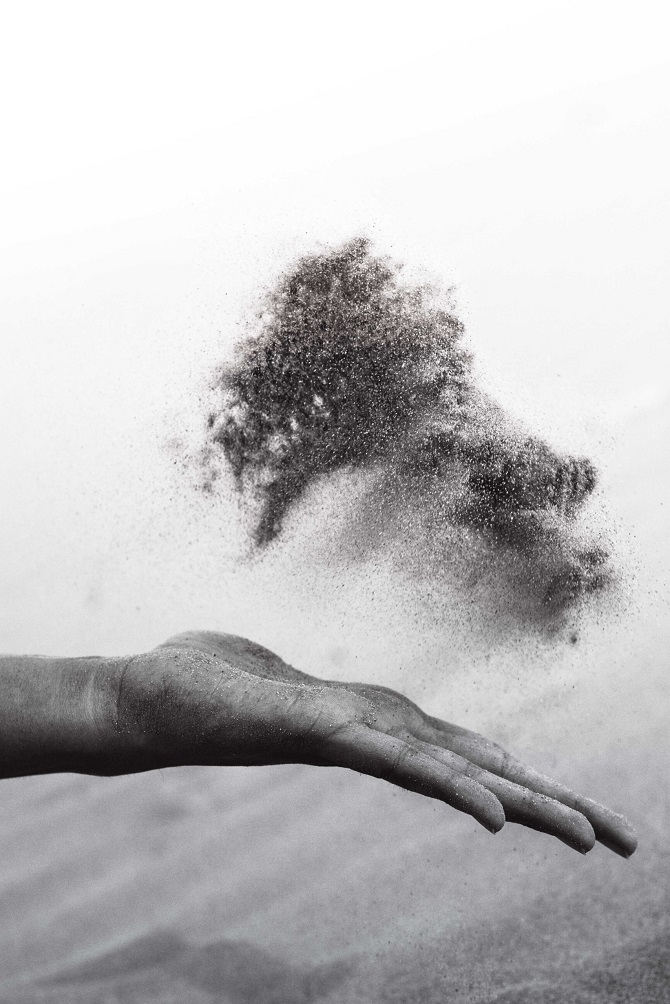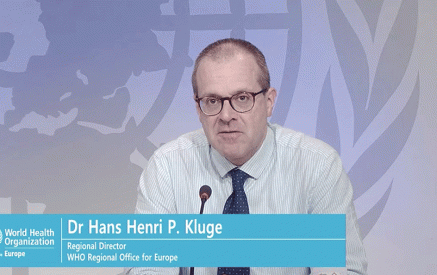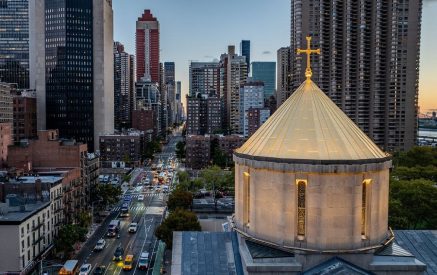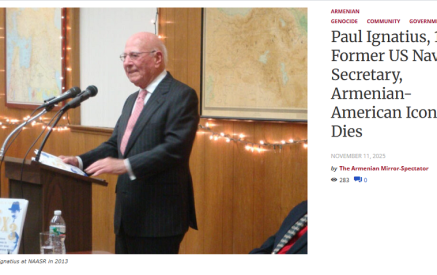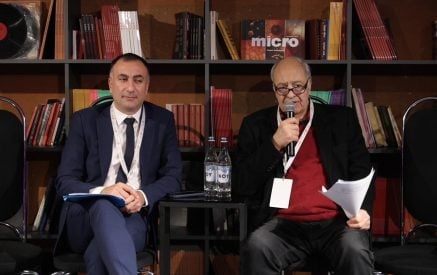The Armenian Weekly. The streets of my San Francisco are empty – ghostlike, masked neighbors are warily creeping around the avenues. Golden Gate Park in its lush green foliage boasts the beauty of my beloved city. Hipster Teslas and skateboarders sneak through the quiet streets of an America that has been silenced into nothingness. My Zoom meetings await. Students nervously click in as I become an online pedagogue in my home office.
Nothing. I am nothing.
Last September, the San Francisco Bay Area Armenian community bid farewell to our Hayr Sourp Shernezian as he moved to other service in Beirut. A banquet was held, proclamations were given, dignitaries were present, and gifts were offered. It was your typical community banquet and well deserved as we subsequently welcomed our new Hayr Sourp Smpad Saboundjian. When Hayr Sourp was asked to give his final speech to the community, he said the following:
“Nothing. I am nothing.“
Read also
We were caught off guard. His humility was palpable, and everyone was a little shocked. As he began his farewell speech, I began thinking of the element of nothingness.
It took me to a moment when my daughter was in sixth grade at Krouzian Zekarian Vasbouragan Armenian School and was studying a unit on world religions and Buddhism. When a “real Buddhist” visited her classroom and asked the students to close their eyes and think about “nothing,” my daughter opened them and asked, “Sir, how can we think about nothing? If we think about nothing, nothing is SOMETHING!” (Needless to say, she was chastised by her teacher, but secretly, my rebellious self was proud.) When she got home I also chastised her and asked her the typical Armenian question: “Ooreesheenuh kezee inch?” She got mad at me and answered back, “But mom…nothing IS something!” As I told her to eat her dinner and be quiet, I thought about it, and then agreed.
“Nothing. I am nothing.”
Lately, I’ve also been reminded of Shakespeare’s Hamlet which I introduced to my AP English Literature students last fall; it was in Act II, Scene II when the protagonist ponders the four elements and the state of humanity:
What a piece of work is a man! how noble in reason!
how infinite in faculty! in form and moving how
express and admirable! in action how like an angel!
in apprehension how like a god! the beauty of the
world! the paragon of animals! And yet, to me,
what is this quintessence of dust? man delights not
me: no, nor woman neither, though by your smiling
you seem to say so.
It is interesting to note that Hamlet creates a fifth element by asking “what is this quintessence of dust.” Shakespeare illustrates that “dust”—that nothingness—is the amalgamation of all the elements—earth, water, fire and air—all put together in an existential question of how the essence of being human, of being alive, is not “nothing,” but is everything. Besides the four elements of fire, earth, air and water, the early alchemists believed that there was a fifth essence which was the highest. The nothing that Hayr Sourp may have been alluding to, unknowingly or knowingly, is the concentrated virtue of the spirit—the dust.
All the elements create nothing, but nothing becomes, oxymoronically, everything. It becomes us.
So now, during this horrid pandemic, humanity has been reduced to nothing, and we are beginning to comprehend that the quintessence of dust – fine particles of aeolian matter – is everything. The nothing is indeed something. Maybe Areni was right. Maybe I shouldn’t have scolded her.
As Armenians, this is not the first time we have been faced with the effects of this quintessence. We are painfully aware of the element of nothing. Many of our Diasporan brethren do not speak Armenian, and our ancestral homelands only bear the ghosts of our ancestors. Our Trebizond, our Sepastia, our Van and our Ordu have been reduced. We have, like dust, blown across the seven seas into our current quintessence of dust, the Armenian Diaspora.
I have a feeling that COVID-19 conjures up old wounds for us. It reminds us of a people that that have been forced out of homes, whether it was during the Genocide, the Iranian Revolution, the Lebanese Civil War, the mass migration of Armenians in the early 1990s or the current Syrian Armenians who blow through the four corners of the earth until their own dust settles. However, I also think that Shakespeare was onto something – that quintessence is the Armenian people’s essence.
We are forced now into our homes to spend time with the new generations of Armenians, our children. We are forced out of our earthly pleasures, the earthly pleasures of a model minority who excels financially, and we are, like our own ancestors, catapulted into a life where all of those “things” become so unimportant. Our living rooms with fancy chairs have become classrooms. Our garages have become the storage facilities for bulgur, vosp, and flour. Our computers have become our connection to church, school, friends and beyond. As we are reduced to nothing, let us remember that this April, the 105th anniversary of the Armenian Genocide, an event that wished to make nothing of us, created a connected amalgam of dust that will again become that something that science and religion both agree on – that man was formed from nothing, from dust, and that God will form man again from that nothingness that at times feels so empty, but is the essence of what creates our humility and our humanity.
May the Armenian people look back at this pandemic as yet another symbol of veradzununt. May our schools carry the torch of our ancestors. May our elders be strengthened with the prayers of our Catholicos (who artfully stated that Facebook should now become FAITH-book) and let us become humble as we face the next few months because after all, we are, truly and collaboratively, the nothing that is something.
Sevana Panosian
Photo: Kunj Parekh/Unsplash




















































